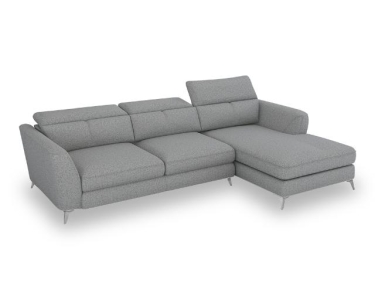Couldn't find the product you want?
Fill out this form to request the product.
Imports

Mexico has the 15th largest nominal GDP and the 11th largest by purchasing power parity. With the signing of the North American Free Trade Agreement (NAFTA) in 1994 with the United States, Mexico's trade economy is heavily linked to the United States', with as high as 80.5 percent for Mexico's exports going to the U.S. Mexico has also built an extensive network of free trade agreements with over 40 countries, such as the European Union, Japan Israel, and countries in South and Central America. This agreements liberalize the trade tariffs between countries and regions, and have made Mexico one of the most open country to trade. The United States and Canada are the two biggest importer of Mexico's goods.
Mexico main imports are metallic products, machinery and equipment (50 percent of total imports), mining products, chemical products, plastic and rubber products.
The following import product groups represent the highest dollar value in Mexican foreign purchases in the last period. Also shown is the percentage share each import category represents in terms of overall imports into Mexico.
1. Electronic equipment
2. Machines engines pumps
3. Vehicles
4. Oil
5. Plastics
6. Medical technical equipment
7. Organic chemicals
8. Iron or steel products
9. Iron and steel
10. Rubber
Mexico's most important trade partners that import the most Mexican shipments by dollar value are United States, Canada, China, Spain, Brazil, Colombia, Germany, India, Japan and Netherlands.
Customs requirements of Mexico
Mexican Customs Contacts:
Website: http://www.aduanas.gob.do/
Email: info@dga.gov.do
Telephone: +52(809) 547-7070
Fax: +52(809) 540-5854
Address: Avenida Abraham Lincoln No.1101, casi esquina John F. Kennedy, Ensanche Serrallés, Edificio Miguel Cocco, Santo Domingo. R. D.
Mexico is an original member of the World Trade Organization, in which it is represented by the Ministry of the Economy. It signed the Fourth and Fifth Protocols of the General Agreement on Trade in Services (GATS). Mexico is not a party to the Information Technology Agreement (ITA). It grants MFN treatment or better to all countries, whether or not they are WTO Members.
Globally, Mexico stands at 44 in the ranking of 189 economies on the ease of trading across borders. According to data, exporting a standard container of goods requires 4 documents, takes about 12 days and costs about $1500. Importing the same container of goods requires 4 documents, takes 11.2 days and costs $1887.
Import duty and taxes when importing into Mexico
Import duty and taxes are due when importing goods into Mexico whether by a private individual or a commercial entity. The valuation method is CIF (Cost, Insurance and Freight), which means that the import duty and taxes payable are calculated on the complete shipping value, which includes the cost of the imported goods, the cost of freight, and the cost of insurance. However, the duties of some products can be charged based on a unit of measure. In addition to duty, imports are also subject to sales tax, customs processing fee (DTA), and in some cases to excise.
Duty Rates
Duty rates in Mexico vary from 0% to 140.4%, with the average duty rate at 13.97%. Some products can be imported free of duty (e.g. laptops, and other electronic products).
Mexico operates a ‘Simplified Regime’ for postal and courier imports. A global tax of 16% on the CIF value applies to:
Imports by post where the FOB value, i.e. product value excluding shipping and insurance cost, is between US$300 and US$1000
Imports by courier where the FOB value is between US$50 and US$1000
Preferential duty rates
Mexico has signed free trade agreements with a number of countries. To be entitled to preferential tariff treatment, a good must meet the "originating" criteria as set out on the Rules of Origin of individual FTAs. A certificate of origin is required upon importation for preferential duty rates to apply.
NB: Imports by post or courier do not automatically benefit from preferential tariff treatment as they clear customs through a simplified process. For preferential tariff treatment to apply a customs broker has to be assigned, and the import has to be cleared through the regular customs clearance process.
Sales Tax
VAT is levied on imports at a standard rate of 16% calculated on the sum of the CIF value, duty, DTA, and excise if applicable. Some products can be imported free of VAT.
Minimum thresholds:
- Imports by post with a FOB value up to US$300 are free from all duties and taxes.
- Imports by courier with a FOB value up to US$50 are free from all duties and taxes.
Other taxes and custom fees:
- DTA or Customs Processing Fee is applied to all imports at a rate of 0.08% of the sum of the CIF value and duty.
- Excise is applicable to alcohol and tobacco products at rates between 25% and 160% on the sum of the CIF value and duty.
Sources:
http://www.promexico.gob.mx/en/mx/
http://www.mexico-chamber.org/
http://www.sice.oas.org/ctyindex/MEX/MEXagreements_e.asp
https://www.wto.org/english/thewto_e/countries_e/mexico_e.htm
http://www.doingbusiness.org/data/exploreeconomies/mexico/

